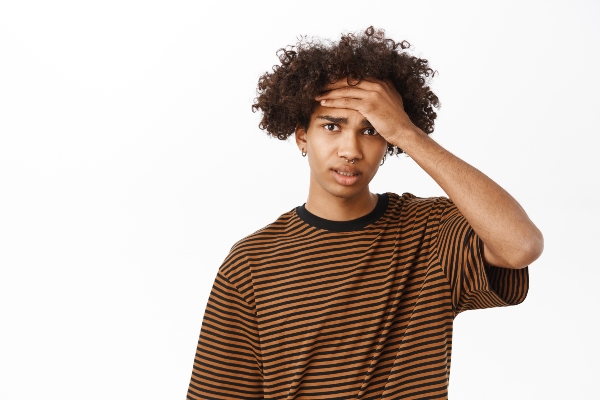 The most common types of depression treatment are psychotherapy (i.e., cognitive-behavioral therapy) and medications (i.e., SSRIs). When standard depression treatment fails, then alternative options may be recommended by a psychiatrist.
The most common types of depression treatment are psychotherapy (i.e., cognitive-behavioral therapy) and medications (i.e., SSRIs). When standard depression treatment fails, then alternative options may be recommended by a psychiatrist.
How a psychiatrist can help treat treatment-resistant depression
A psychiatrist can help with the treatment of treatment-resistant depression (TRD). They can help patients with a milder form of depression as well. The following is a closer look at TRD, standard depression treatment (and why it may fail), and what options are available for individuals with a more severe case of depression.
What is treatment-resistant depression?
Depression is a mental health disorder affecting a person's daily functioning. It is most commonly associated with feelings of sadness, but other symptoms may also occur. These symptoms include apathy, anxiety, insomnia, changes in eating patterns, and mood swings. Treatment-resistant depression, or TRD, develops when someone with depression does not see symptom improvement through standard depression treatment (see below). In this case, there are treatments available specifically reserved for treating TRD.
What is standard depression treatment?
Standard depression treatment usually includes a combination of antidepressant medication and psychotherapy. Of course, this is a generalization, and every treatment plan is unique. Nevertheless, these are often the first two treatments attempted to treat depression. In most cases, they are used in combination with one another. The most common type of psychotherapy used for treating depression is cognitive-behavioral therapy (CBT). For most patients, this is highly effective, but some patients are resistant to standard treatment.
What options are available for treatment-resistant depression?
Treatment-resistant depression is, by its nature, harder to treat. In this case, psychotherapy and antidepressants are not producing the desired results. Patients with TRD usually continue their normal plan, but additional treatments are available. More advanced treatment options include:
- Ketamine infusions – A form of sedative that can help produce positive feelings for patients with TRD.
- ECT therapy – Small electric currents are sent to the brain to produce a brief and minimal seizure.
- Transcranial magnetic stimulation (TMS) therapy – This uses magnetic fields to stimulate brain cells.
How can I choose the right option for me?
The psychiatrist starts with a thorough examination of the patient's condition, medical history, existing treatment plan, reported symptoms, and more during the first session. They may also order lab tests, a physical examination, and more to help determine the extent of the patient's TRD. From there, they can provide a treatment recommendation. Of course, the patient's treatment preference is also a major consideration. The psychiatrist can also answer any of the patient's questions to help them feel more comfortable with any recommended treatment plans.
Get in touch with our psychiatry team today
If you have not found relief from depression through lifestyle changes or with standard depression treatment, there may be a better way. Call our psychiatry team today to learn more about your advanced depression treatment options during a consultation visit and schedule your first session.
Request an appointment or call Future Psych Ketamine Clinics at 843-788-9718 for an appointment in our Myrtle Beach office.
Recent Posts
Chronic headaches can be debilitating, interfering with day-to-day activities, work, and quality of life. While occasional headaches are a common experience, persistent and frequent headaches may indicate an underlying condition that requires attention. Psychiatrists can assist patients in managing chronic headaches, particularly when stress, anxiety, depression, or other mental health factors contribute to the condition.…
In recent years, telemedicine has provided accessible healthcare to people nationwide, particularly in psychiatry and other mental health services. This approach to care makes mental health services more accessible and convenient for patients and medical professionals. Through telemedicine, psychiatrists can overcome traditional barriers to patient care while cultivating meaningful connections.One of the most significant benefits…
Psychiatric evaluations are clinical interviews that occur during a first appointment with a psychiatrist. These evaluations are essential tools in mental health care. They can help psychiatrists build effective treatment plans tailored to each patient's unique needs. Here is how psychiatrists utilize psychiatric evaluations to diagnose, treat, and support their patients.A psychiatric evaluation is a…


